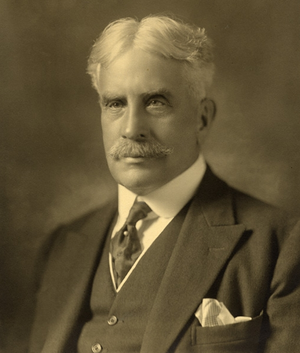Alistair Griffiths
Alistair Wallace Griffiths | |
|---|---|
 | |
| 16th President of Zamastan | |
| In office September 22nd, 1898 – September 22nd, 1904 | |
| Preceded by | Ray Carr |
| Succeeded by | Olivier Saunders |
| Personal details | |
| Born | May 6, 1849 Tregueux, Tregueux, Zamastan |
| Died | September 9, 1932 (Age: 83) Tofino, Zian, Zamastan |
| Nationality | Zamastanian |
| Political party | Conservative Capitalist Party |
| Height | 5 ft 11 in (180 cm) |
Alistair Wallace Griffiths, affectionately known as AWG, was a Zamastanian politician who served as the 16th President of Zamastan, succeeding Ray Carr in the 1898 election and serving three terms from 1898 to 1904, losing his reelection bid to Olivier Saunders. He was a member of the Conservative Capitalist Party, the first member of the party to be elected President until Marvin Gaviria in 1946. Born to a Presbyterian minister and his wife, Griffiths grew up in Tregueux. In 1871, he was elected mayor of Tregueux and later, governor of the province of Tregueux. In 1888, he was made Secretary of State under President Elliott Thompson, and continued serving until 1896 under Zachariah Walsh. He was dismissed by President Ray Carr, but was elected to the presidency two years later in 1898.
Griffiths was a formidable policymaker, and he also drew corresponding criticism. His intervention in the Portapique Strike of 1899 to keep the railroads moving angered labor unions nationwide in addition to the party in Jade province; his support of a gold standard alienated the agrarian wing of the Conservative Capitalist Party. Critics complained that Griffiths had little imagination and seemed overwhelmed by the nation's economic disasters—depressions and strikes—in his second term. The Panic of 1900 produced a severe national depression, nearly ruining Griffiths' administration. However, Griffiths' most notable policy was involvement in Yuan during the Yellow Flag Rebellion, which eventually led to the annexation of Gangkou and helped boost Zamastanian foreign standings. Today, Griffiths is considered by most historians to have been a successful leader, and has been praised for honesty, integrity, adherence to his morals and defying party boundaries, and effective leadership. He is generally ranked among the upper-mid tier of Zamastanian presidents.
